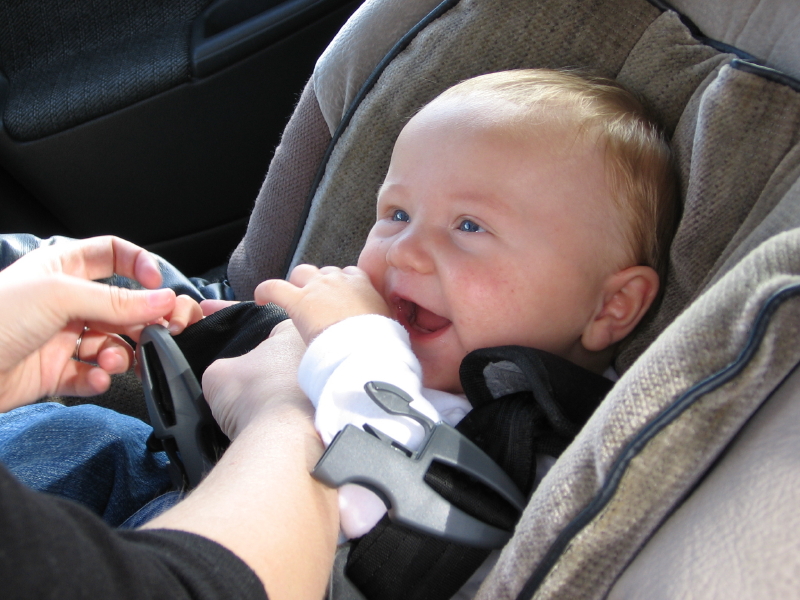 As of January 1, 2017, California is now one of the states that require children under 2 years of age to remain in the rear-facing car seat when riding in a vehicle, and we couldn’t be happier. Since most safety organizations advocate that children remain in the rear-facing car seat until their fourth birthday, this is a step in the right direction.
As of January 1, 2017, California is now one of the states that require children under 2 years of age to remain in the rear-facing car seat when riding in a vehicle, and we couldn’t be happier. Since most safety organizations advocate that children remain in the rear-facing car seat until their fourth birthday, this is a step in the right direction.
Sadly, in 2014, an average of two children under the age of 13 were killed and 308 were injured daily in the United States. According to the Centers for Disease Control and Prevention (CDC), properly used safety seats can reduce the risk of death by as much as 71% among infants, 54% among toddlers, and 45% among children ages 4 to 8.
Why Rear-Facing Seats?
Car seats in the rear-facing position are most effective because, in the event of a crash, the child’s head and neck are supported by the car seat. The rear-facing car seat acts as a buttress, providing protection as the force of the impact disperses around the child, and thereby aiding in the security of the still-developing brain and spine.
As your child gets older, he or she will, of course, want to move away from the confines of the car seat and ride in the car like a grown-up. You, as an adult, have to remain resolute to protect your child. Here’s how to determine when your kiddo is ready.
To begin the test, your child should be seated in a parked vehicle without the car seat or booster seat. The following five questions will determine whether or not your child is ready to ride in the vehicle without a safety seat.
- Is the child able to sit all the way back in the vehicle’s seat?
- Do the child’s knees cross comfortably over the edge of the seat?
- Does the seat belt lay over the shoulder between the arm and the neck?
- Does the lower part of the seat belt, the lap belt, ride as low as possible, touching the thighs?
- Is it possible for the child to remain seated like this for the duration of the trip?
If the answer is “no” to any of the above questions, then your child is not ready to ride in the car without a safety seat. It’s not worth risking an injury to your child.
For more information on the new laws regarding child vehicle restraints and how they may affect you and your loved ones, call the Jurewitz Law Group Injury & Accident Lawyers at (619) 233-5020 or toll-free (888) 233-5020.


